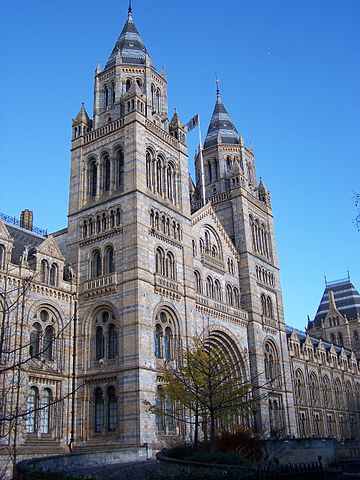
In part 1, I was discussing a well-known but ill-sourced quotation from a “Dr. Etheridge, Fossilologist of the British Museum,” according to which, “Nine-tenths of the talk of evolutionists is sheer nonsense, not founded on observation and wholly unsupported by fact. This museum is full of proofs of the utter falsity of their views.” The passage appears in antievolution literature as far back as 1903, the earliest citation given by Ronald L. Numbers in The Creationists. Numbers also cites a letter in 1922 from the director of the British Museum tentatively identifying Etheridge as “Robert Etheridge, Junr., who was Assistant Keeper of Geology in this Museum from 1881 to 1891”; elsewhere (in “Creation, Evolution, and Holy Ghost Religion,” reprinted in his Darwinism Comes to America [1998]) Numbers editorializes on Etheridge’s career, describing him as “a little-known assistant keeper of geology” and saying he “spent his last years in obscurity in Australia.”
But actually, Robert Etheridge Jr. wasn’t obscure. According to the Australian Dictionary of Biography (1981), he was a student of Thomas Henry Huxley and John Tyndall. He went to Australia originally in 1866, returning to Britain in 1871, and returning to Australia in 1887. (Note that these dates are inconsistent with the claims in the letter from the director of the British Museum.) Etheridge published hundreds of scientific notes and papers in geology, paleontology, and ethnology; he became the Curator of the Australian Museum in 1895; he received honors from the Royal Society of New South Wales and the Australasian Association for the Advancement of Science. “Numerous species of animals, both fossil and recent, were named in his honour and his name was also given to a river and gold-field in Queensland, a high range on the Kosciusko plateau and a glacier in Antarctica.” “Ether.” is the standard botanical abbreviation for him.
So Etheridge enjoyed a productive and respectable, if not a spectacular, scientific career before his death in 1920, pace Numbers. That’s no reason that he couldn’t have possessed the antievolutionary sentiments attributed to him, however, even though he was a student of Huxley, famously dubbed Darwin’s bulldog, and Tyndall, who was a comparably tenacious defender of evolution. Of Etheridge the Australian Dictionary of Biography entry says, “A thorough scientist and conservative by nature, he had little sympathy with speculation and directed his attention mainly to exact observation and the recording of facts”; that could certainly describe someone who was a competent field paleontologist who was nevertheless suspicious of any evolutionary theorizing about the history of life. But there are convincing reasons to doubt that the identification of Robert Etheridge Jr. as the author of the quoted sentiment is correct.
First, Dyson Hague’s “The Doctrinal Value of the First Chapters of Genesis” (1910), a pamphlet that appeared in The Fundamentals, quotes the by-now-familiar Etheridge passage, attributing it to “the late Robert Etheridge of the British Museum, head of the geological department, and one of the ablest of British paleontologists”: in 1910, Robert Etheridge Jr. was alive and well. Second, the 1911 edition of the Encyclopedia Britannica states, “In 1881 Etheridge was transferred from the Geological Survey to the geological department of the British Museum, where he served as assistant keeper until 1891.” The dates of the assistant keepership are exactly as the director of the British Museum presented them—but the entry is not for Robert Etheridge Jr. but for his father, the geologist and paleontologist Robert Etheridge (1819–1903). Both of these strongly suggest that it’s Etheridge père, not fils, to whom the quotation is attributed.
Third, and what clinches it as far as I’m concerned, is a near-contemporary sighting of the Etheridge passage, which I found in Charles Force Deems’s A Scotch Verdict in re Evolution (1885). (A Scotch verdict, so-called because it’s available only in Scottish courts, is a verdict of “not proven” as opposed to guilty or not guilty.) Deems quotes a letter from George E. Post (as mentioned by Alexander Patterson), dated August 2, 1885, which refers to Etheridge as “Mr. Etheridge, F.R.S.” That “F.R.S.” of course means Fellow of the Royal Society. Robert Etheridge Jr. was not a Fellow of the Royal Society, but his father Robert Etheridge was; he was elected in 1871. On the basis of its completeness and its specificity, I’m inclined to regard Deems’s version as close to the original. But is it necessary to take Deems’s word for it, or is it possible to come closer to the original report of Etheridge’s words? That will occupy the beginning of part 3.

